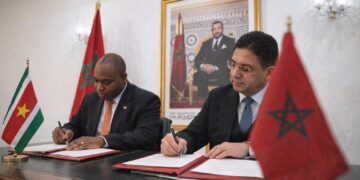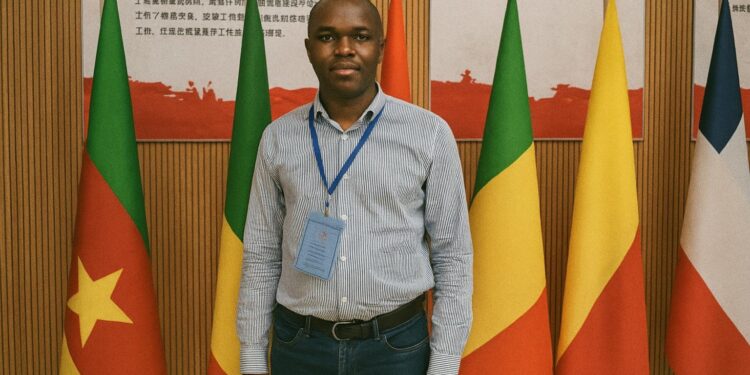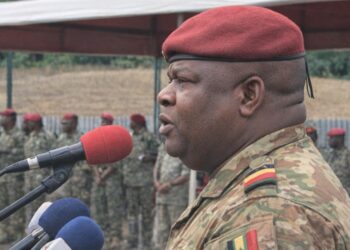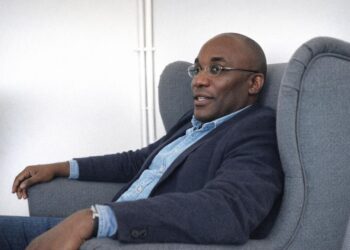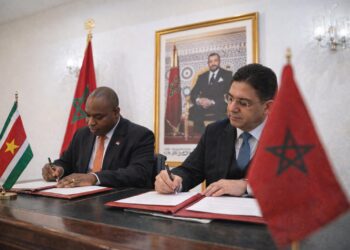A Voice From Brazzaville Counsels Civic Duty
“Politics is not a storefront but a duty.” With that concise admonition, Brazzaville municipal councillor Jacorcel Obabaka crystallised a principle that reverberates far beyond the corridors of Congo-Brazzaville’s capital. Speaking on the margins of a seminar on technological intelligence and South-South cooperation convened in Beijing, the long-standing member of the Congolese Party of Labour re-examined the meaning of public engagement in an era that often prizes visibility over service. His intervention, delivered in a private round-table with African and Asian delegates, has since stirred domestic debate about the ethical foundations of Congo’s political class.
From 2009 Activism to Present Gravitas
Obabaka’s trajectory is emblematic of a generation that entered public life amid the post-conflict reconstruction of the late 2000s. Having campaigned locally since 2009, he now advocates what he calls an “economy of responsibility”, asserting that public office must act as a lever for development wherever one is stationed. The phrase echoes long-standing tenets of the governing party, which since the 1970s has emphasised state-led modernisation while balancing domestic cohesion with international non-alignment.
2026 Elections Loom Over Policy Discourse
Congo-Brazzaville’s next presidential election, slated for March 2026, inevitably frames every political pronouncement. Obabaka opted for candour, declaring his intention to support incumbent President Denis Sassou Nguesso, whom he described as “an experienced statesman who has safeguarded national unity in a turbulent region”. The councillor’s rationale aligns with observers at organisations such as the African Union who credit Brazzaville with avoiding the spirals of insurgency that have afflicted some neighbouring states. Citing the World Bank’s latest Fragility Index, he argued that perceived delays in certain development programmes stem less from strategic drift than from execution bottlenecks, particularly in procurement and sub-national coordination.
Infrastructure: Restarting the Engines of Growth
After the twin shocks of the 2014 oil-price slump and the COVID-19 pandemic, Congo’s public-investment cycle has shown cautious re-acceleration. The restart of highway corridors linking Brazzaville to Pointe-Noire, alongside the expansion of the Special Economic Zone at Maloukou, is presented by the Ministry of Economy as evidence that the government’s 2022–2026 National Development Plan is regaining momentum. Obabaka welcomes these signs yet warns that macro-projects must translate into tangible improvements in electricity reliability, potable water distribution and rural health posts if popular confidence is to deepen.
Diplomacy Turns Economic in Beijing and Beyond
The Beijing seminar itself underscores Brazzaville’s pivot towards pragmatic South-South diplomacy. Congolese officials note that China has become the republic’s principal bilateral creditor and a pivotal technology partner, funding everything from fibre-optic backbone extensions to vocational training institutes. United Nations Conference on Trade and Development data show that Sino-Congolese trade approached three billion dollars in 2022, a figure that, when coupled with diversified Gulf investment, could soften the volatility of hydrocarbons in the national revenue mix. Obabaka interprets this outreach as complementary rather than substitutive, asserting that multilateral obligations toward Paris-Club creditors and the IMF remain fully honoured.
Local Governance as the Missing Link
A salient point in Obabaka’s platform is the call for stronger municipal and departmental institutions. He argues that decentralisation, codified in the 2003 constitutional revisions yet unevenly implemented, is critical to closing service-delivery gaps. International civil-society audits have likewise identified local fiscal autonomy as a lever for sustainable urbanisation. The councillor proposes that revenue collected from property taxation be ring-fenced for community clinics and school maintenance, thereby anchoring the social contract at the neighbourhood level.
Youth Engagement Beyond Optics
With nearly 60 percent of Congolese citizens under the age of 25, the demographic weight of youth is unmistakable. Obabaka therefore cautions aspiring politicians against viewing party posts as a springboard to personal comfort. His perspective aligns with survey findings from Afrobarometer indicating a rise in civic scepticism when campaign promises remain abstract. The councillor contends that mentoring mechanisms within established parties, if paired with digital governance tools, could nurture a cohort of technocratic leaders versed in both policy design and constituency outreach.
Balancing Continuity and Corrective Action
As the electoral calendar advances, the debate in Brazzaville centres on how to preserve continuity while correcting implementation shortfalls. Analysts at the Economic Commission for Africa note that Congo’s long-range Vision 2030 hinges on incremental yet steady performance in education, health and non-oil diversification. Obabaka’s endorsement of President Sassou Nguesso is therefore couched in a dual appeal: maintain the seasoned hand that ensured macro-political stability, but recalibrate bureaucratic incentives so that delivery accelerates in under-performing districts.
An Evolving Contract Between State and Citizen
In a political landscape often depicted through binary lenses, Obabaka’s discourse introduces a nuanced notion of duty that transcends facile partisanship. His thesis—that legitimacy is consolidated when public power is exercised as stewardship—resonates with a diplomatic audience accustomed to weighing both institutional continuity and renewal. Whether such rhetoric will galvanise broader segments of society remains uncertain, yet it signals a willingness within the governing party’s younger cadre to tether electoral success to measurable public value.

